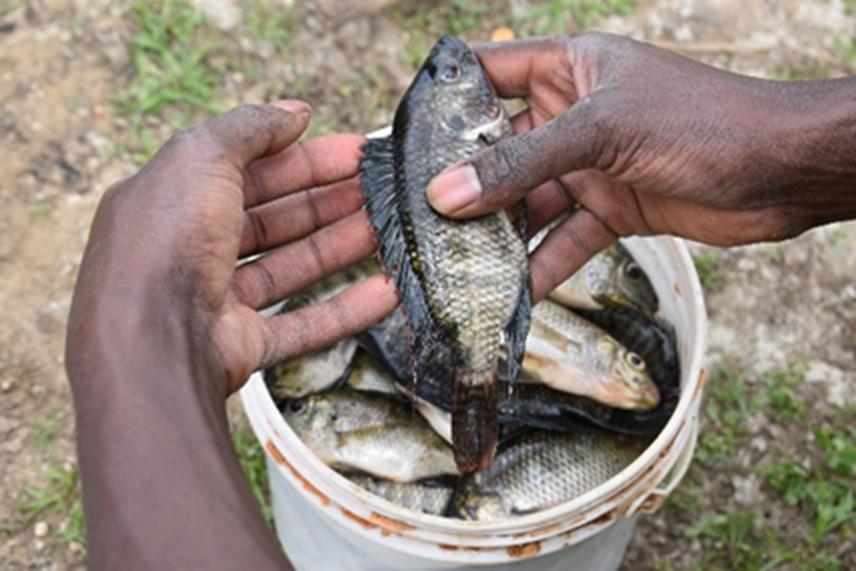Link to poster featuring the project.
David Ouma
This project aims to evaluate Labeo sp. nov. ‘Baomo’ current conservation status to initiate long-term protection through enhanced habitat protection and local community conservation awareness and education. Labeo redtail, Labeo sp. nov. 'Baomo,' is an undescribed species in Cyprinidae's family listed as vulnerable (VU) in the IUCN Red List Category that is endemic to floodplains of Tana River delta Ramsar site, Kenya. Loss of hydrological connectivity has caused high fragmentation of the species habitat, intensified anthropogenic activities, and spread of invasive species.

Sabaki Tilapia, Oreochromis spirulus, caught by fishers at L. Shakababo.
Specifically, the project will bring new insight into- and generate first-hand up-to date scientific information on Labeo sp. nov. 'Baomo' assemblage, population status, and distribution patterns in lower River Tana, Kenya. The project will improve community knowledge on the importance of the species and create awareness through participatory workshops and conservation measures training.
Finally, the project will initiate habitat restoration and enhancement for the target species through breeding and other ecologically important sites. The project will attempt to re-establish and re-connect floodplain wetland connectivity by enhancing seasonal tributaries, removing artificial levees, and digging dykes to remove silt where appropriate. Restored connectivity will increase the recruitment of native species into the floodplain and reduce the competitive pressure from the introduced invasive Oreochromis niloticus.
Community members will be persuaded through training workshops to conserve identified habitats for fish spawning and breeding. The habitat restoration plan will further include mobilizing the local Beach Management Unit (BMU) members to remove stumps of the invasive Prosopis juliflora, ‘Mathenge’, inside the floodplain wetlands. This will open up fishing grounds and enable local fishers to efficiently use drag and gill nets common fishing gears around floodplain wetlands. Besides, the project will persuade fishers through training workshops to stop using small-meshed fishing gears. Alongside these, appropriate fishing gear will be distributed to selected fishers to promote sustainable fishing. As the species is exploited in commercial fishery, the project will persuade fishers to return to the water smaller sized fish of low value and other invaluable bycatch when caught in nets. This will be to make the fishery profitable and sustainable.